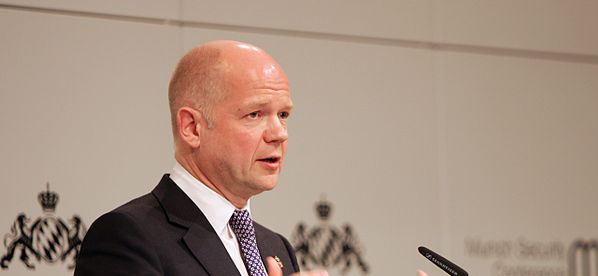British Foreign Secretary, William Hague has pressed the EU to amend the arms embargo on Syria so that military equipment could be supplied to opposition forces. On 18 February the EU agreed to maintain the embargo, but on 6 March Hague confirmed EU agreement for UK training of opposition forces and the supply to them of”non-lethal” military equipment such as armoured vehicles.
Press release by CAAT
Campaign Against Arms Trade (CAAT) is concerned that moves by Foreign Secretary William Hague to allow the supply of “non-lethal” equipment such as armoured four-wheel drive vehicles to the opposition authorities in Syria is part of a gradual undermining of the EU arms embargo on that country.
CAAT wants to see the emergence of a democratic and peaceful Syria and supports diplomatic, political and other non-violent moves to protect civilians, for a de-escalation of the conflict and for negotiations for a positive outcome.
CAAT opposes any relaxation of the arms embargo with regards to any of the parties in the conflict in Syria for several reasons.
- Military-focused responses undermine efforts to negotiate a solution and to protect civilians.
- Anti-Assad forces are largely an unknown quantity, consisting of many different groups, including those of a highly sectarian nature. At this stage it is impossible to say what power structures will emerge on either side or what form future governing bodies will take. Supplying arms to any group will increase future instability.
- Syria is already awash with weaponry. Any further weaponry would most likely prolong the conflict and reduce the chances of a peaceful outcome.
- Arming rebel and opposition groups will have unforeseen long-term consequences for Syria and the region.
The UK Government should:
- reinstate the arms embargo on all sides in the conflict in Syria
- ensure no weaponry supplied to third countries, such as Saudi Arabia, is sent on to any faction within Syria
- place pressure on countries giving military support to anti-Assad militias, overtly or covertly, to end such support and supplies
- place pressure on Russia and other supplier countries to stop supplying weapons to the Syrian government, and to end any official UK government relationship with Rosoboronexport and other agencies that supplies arms to Assad
- give all possible support to a negotiated solution to the conflict
- pledge greater resources for humanitarian assistance to refugees and displaced people.
About CAAT and the Middle East
The Campaign Against Arms Trade (CAAT) in the UK works to end the international arms trade.
CAAT has consistently drawn attention to the UK government’s attempts to promote arms sales to authoritarian regimes in the Middle East. Supplying them with weapons gives them international credibility. Some of these regimes, such as Saudi Arabia, have a human rights record at least as poor as that of Syria before 2011.
CAAT believes that whatever the future government of Syria, the UK should not see its formation as an arms sales opportunity.
Kaye Stearman
Media Co-ordinator
Campaign Against Arms Trade (CAAT)










